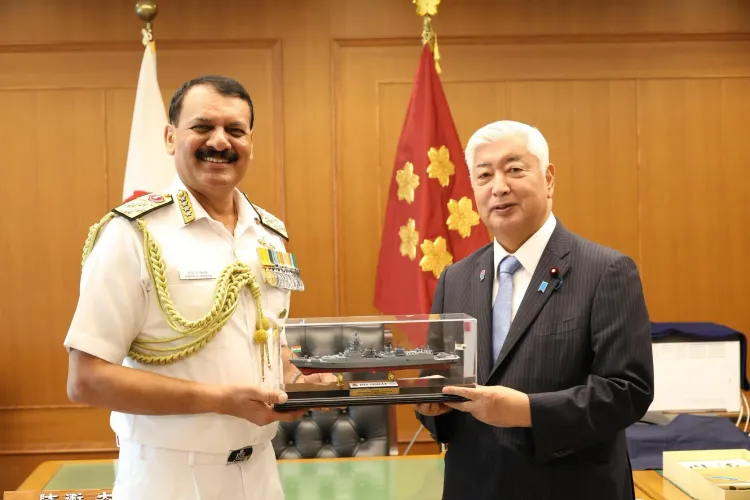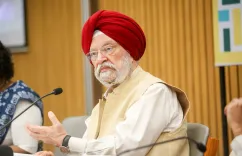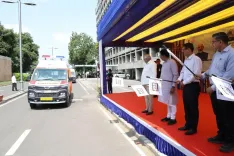How Are Indian Navy Chief and Japanese Defence Minister Strengthening Strategic Ties?

Synopsis
Key Takeaways
- Strengthening bilateral defence cooperation is a priority for both nations.
- The visit underscores the importance of addressing emerging security challenges.
- Admiral Tripathi aims to enhance strategic ties between India and Japan.
- Bilateral discussions will focus on training and personnel exchanges.
- The ongoing visit reflects the deepening Special Strategic Partnership.
Tokyo, July 31 (NationPress) Admiral Dinesh K. Tripathi, the Chief of the Naval Staff (CNS), engaged in a bilateral discussion with General Nakatani, Japan's Defence Minister (Retd.), on Thursday, focusing on enhancing defence collaboration.
During his current visit to Japan, the Indian Navy Chief reaffirmed India's commitment to addressing emerging security threats.
The two nations reiterated their shared goal of strengthening strategic ties.
According to a post by the Indian Navy on X, 'Admiral Dinesh K Tripathi, during his visit to Japan, met with General Nakatani, the Defence Minister of Japan. The discussions emphasized enhancing bilateral Defence Cooperation, promoting technological and defence industry collaboration, and reinforcing training and personnel exchanges between the two countries and their navies.'
'This interaction reaffirmed the shared determination to tackle emerging security challenges and foster closer bilateral defence relations, marking a significant step towards advancing India-Japan strategic synergy,' it further noted.
On Wednesday evening, Indian Ambassador to Japan Sibi George hosted a dinner in honour of the Navy Chief in Tokyo, attended by Defence Minister Nakatani and Admiral Saito Akira, Chief of Staff, Japan Maritime Self-Defence Force (JMSDF).
The CNS is on a four-day official visit to Japan from July 30 to August 2, part of ongoing efforts to strengthen bilateral defence relations in alignment with the evolving 'Special Strategic and Global Partnership', with an emphasis on enhancing maritime cooperation.
Throughout this visit, the CNS is slated to engage in bilateral discussions with senior Japanese officials, including Vice-Minister of Defence Masuda Kazuo, and hold a meeting with Admiral Saito Akira, Chief of Staff, JMSDF.
The CNS will also tour JMSDF units and engage with the Commander-in-Chief, Self-Defence Fleet, at the Funakoshi JMSDF Base.
Admiral Tripathi's activities in Japan are expected to further solidify the bonds of friendship and defence collaboration, paving the way for improved mutual understanding in critical areas of shared strategic and maritime interest.









